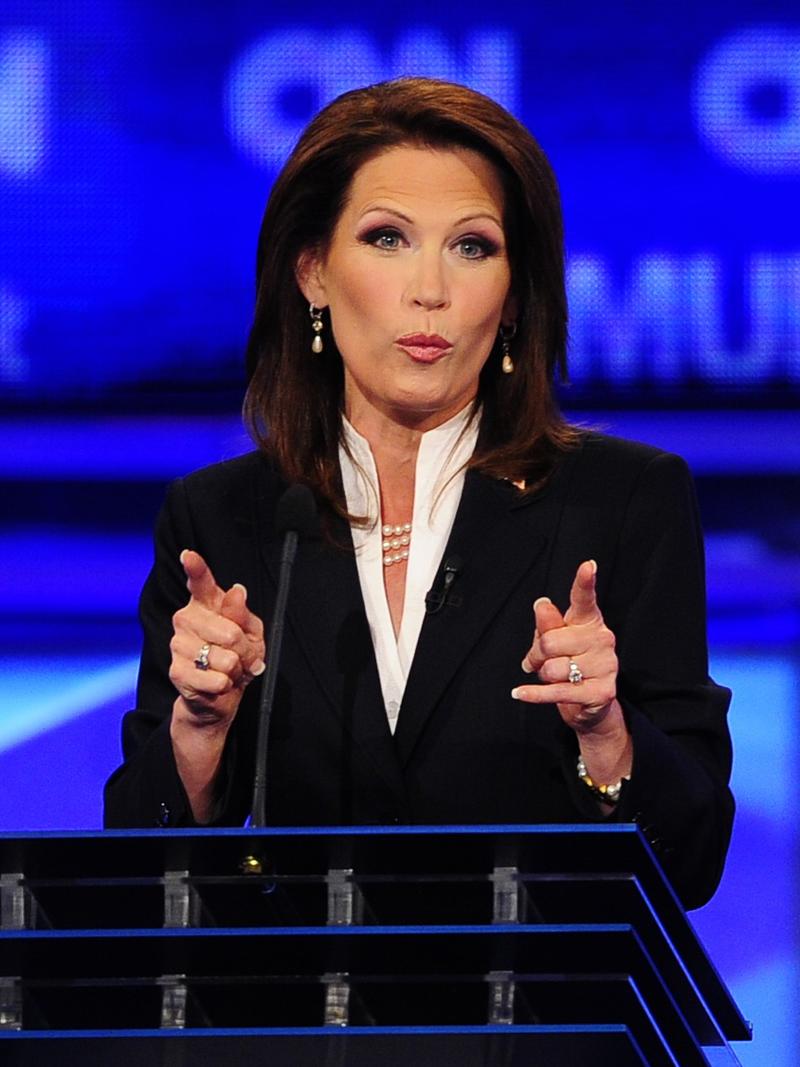MIKE PESCA:
The conventional wisdom says that John Huntsman is still very much a long shot. The conventional wisdom also says the Republican field is uninspiring, though the conventional wisdom adds that President Obama's reelection chances will be tied to the economy.
Hey, just who or what is coming up with this conventional wisdom? And do they get paid by the platitude?
It's a weird thing about conventional wisdom. On the one hand, conventional wisdom is usually derided. On the other hand, according to The Washington Post's Dana Milbank:
DANA MILBANK:
I, I guess 90 percent of the time the conventional wisdom is correct.
MIKE PESCA:
Conventional seems not a very nice thing to call wisdom, but that wasn't always the case, despite the intentions of John Kenneth Galbraith, who did mean for the term to be pejorative when he coined it in 1958. Conventional wisdom was pretty soon seen as a good thing.
At the time, the Random House Dictionary defined it as prudence. Franklin Foer of The New Republic points out that was during the time when the conventional wisdom and the very few men who created it were quite respected.
FRANKLIN FOER:
There was a golden age of conventional wisdom where you had these pundits, the Alsops, Walter Whitman, David Broder issuing these judgments that were reflective of a broad set of thinking among the political class.
MIKE PESCA:
But in the last decade the Internet-aided diffusion of news created a need, someone who could collect and essentially bottle the conventional wisdom so that all the people in the know would know what all the other people knew.
First there was ABC's The Note, which concocted conventional wisdom, as it chronicled it, says Franklin Foer.
FRANKLIN FOER:
It was meta-conventional wisdom. It was very self-conscious about its aspirations to becoming a purveyor of conventional wisdom.
MIKE PESCA:
Created by Mark Halperin, one of The Note’s constructs was the Gang of 500. Bigger than a battalion, smaller than a brigade, Halperin says he invented the concept as a sort of personification of that elusive phrase, “conventional wisdom."
MARK HALPERIN:
There's still an extraordinary amount of influence that is in the hands of a very few number of people, mostly in Washington and New York, a few in Los Angeles and a few other places, but the conventional wisdom set by the Gang of 500 is still a huge driver, not just of news coverage but of political reality.
MIKE PESCA:
The Note had a particular style. Foer calls it self-conscious. Dana Milbank says:
DANA MILBANK:
The Note was much more sort of an act of ego and sort of saying why - you know, why its authors were much smarter than the rest of us.
MIKE PESCA:
There was the instance in 2004 when The Note declared the presidential election was John Kerry's race to lose. This was before the Republicans even had their convention. That prediction drew attention, but it was never absorbed into the conventional wisdom.
ABC still has a note, not written by Halperin who works for Time Magazine, where he has a political tip sheet not called The Note. The new note is Politico’s Playbook, the creation of Mike Allen. Republican consultant Mark McKinnon paints Playbook as stunningly influential.
MARK McKINNON:
I guarantee you that 99 percent of Washington D.C., that's the first thing they read every morning. And everybody reads it. So, everybody's sort of context for the events of the day are set by Mike Allen. I mean, that guy has more power than anybody in Washington, more than any senators [LAUGHS] or, or elected officials. It's remarkable.
MIKE PESCA:
Playbook is seen as straighter than The Note was, a reflection on the former Eagle Scout Allen. Allen dodges, very politely, all attempts at a larger analysis of Playbook. In fact, he answered three of the five questions I asked him with the phrase “what it tries to do” as in:
MIKE ALLEN:
"What it tries to do is look ahead to what's going to happen. So it's not a news summary, but what it tries to look ahead to, what people are going to be talking about that day. What’s gonna be on the cover of Time magazine next week? What am I thinking about if I’m thinking about The Sunday New York Times? If I’m booking packages for a network, what am I thinking about?
MIKE PESCA:
And, of course, by programming these old repositories of the conventional wisdom Playbook is supplanting them. As ubiquitous as Playbook is, Franklin Foer says it epitomizes the retreat of conventional wisdom away from an area where it was once needed.
FRANKLIN FOER:
It's about process in Washington. It's about the raw stuff of politics. It's not about policy in the way that a Joe Alsop column or a Walter Whitman column, or often a David Broder column were. It does reflect conventional wisdom, it is conventional wisdom, but it's not - it's not powerful in the way that old conventional wisdom was, in the way that old conventional wisdom aspired to shape not just political perceptions but actual policy choices.
MIKE PESCA:
Halperin explains this as a reflection on the political culture, which itself is less interested in problem solving, unless the problem is how to hurt the other party. There's not a lot of social incentive to come up with the wisest policies.
Hey, the billion-dollar media idea of the day gives you status updates, not idea updates. The need for the type of conventional wisdom concerned with status accelerates as the market for measured policy solutions evaporates. At least I think that’s the case. I can't be sure, until the conventional wisdom shows up in my inbox or RSS feed.
